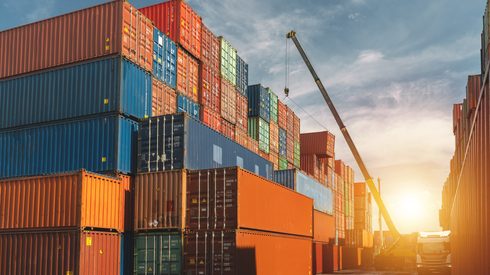These factors combined to create weak demand and bearish sentiment, with some sources describing the situation as a buyer’s market.
Market activity muted in Asia
Market activity was muted early in the month due to Lunar New Year and hopes of resurgent demand and battery raw materials prices after the holiday were dashed when market activity resumed. Lithium carbonate prices in the China domestic market and the CIF China, Japan & Korea market continued to decrease, contributing to the negative sentiment in the black mass markets.
“Recyclers in [South] Korea are very sensitive about raw material costs due to thin margins and a cloudy outlook of metal prices,” a consumer source said.
“There is a lack of confidence in the lithium market,” the consumer added. “[South] Korean recyclers don’t want to have high inventories of raw materials, because the risk would be too high.”
Although lithium carbonate prices remained weak, nickel prices on the London Metal Exchange rallied in the second half of February.
Despite this, Asian recyclers continued to operate with very thin or negative margins, which in turn resulted in reduced capacity utilization and demand for black mass.
Reports that some recyclers had defaulted on their long-term supply contracts, and that these volumes were being offered in the spot market, contributed to the oversupply.
“We are getting regular offers from the United States recently. The tonnage is usually 100-200 tonnes,” a second South Korean consumer source said.
A North America-based producer confirmed they were seeing reduced demand and pressure on payables.
“The low metal values seem to have caused a wait-and-see mindset,” the producer said. “Some may see an advantage in buying now at lower [battery metal] prices, while others are saying demand for electric vehicles is softer than expected, and battery production has slowed.”
Trading was correspondingly thin this month, and traded cobalt and nickel payables for NCM material were at 67-69% CIF South Korea, including the value of lithium. This worked out to 65-67% CIF without the value of lithium, sources said, and compares with 68-70% CIF in January.
Bids were largely around 63-65% CIF, excluding lithium, although some buyers were targeting lower numbers.
Some offers, meanwhile, slipped to 68% CIF, excluding lithium, while other sellers held firm at 73%, unchanged from January.
The month-to-date Fastmarkets’ daily price for black mass, NCM/NCA, inferred, cif South Korea was $4,106.38 per tonne on February 29 (excluding the value for February 29). This compared with the average value in January of $4,216.82 per tonne.
The average Fastmarkets payables assessments for black mass, NCM/NCA, payable indicator, nickel, cif South Korea, % cobalt and nickel NCM and black mass, NCM/NCA, payable indicator, cobalt, cif South Korea, % payable Fastmarkets’ standard-grade cobalt price (low-end) were both 65.5% for February compared with 67.9% in January.
The average Fastmarkets payable assessment for black mass, NCM/NCA, payable indicator, lithium, cif South Korea, % payable Fastmarkets’ lithium carbonate 99.5% Li2CO3 min, battery grade, spot prices cif China, Japan & Korea was unchanged month on month in February at 4%.
For high-cobalt lithium cobalt oxide (LCO) black mass, material of Indian origin was heard to have traded at 63.5% CIF for cobalt, lithium value included.
Trading was thin in Southeast Asia; Fastmarkets’ assessment for nickel and cobalt payables for NCM material were flat at 63-68%, excluding lithium, throughout the month.
European market under pressure from weak demand
The European market was similarly under pressure from weak demand and a growing oversupply.
Recent deals for NCM black mass were heard at payables of 47-50% EXW Europe for nickel and cobalt, but market participants said payables of 50-53% EXW were still workable for higher-quality material.
At the beginning of January, by contrast, the market was assessed at 50-55% for nickel and cobalt.
“There is a general oversupply of black mass and less interest in it,” a European consumer source told Fastmarkets.
The consumer observed that some major producers in the region had generated much larger volumes of the material than they had been able to sell in recent quarters, leading to expectations for reduced production on the horizon.
While the spot market for black mass in Europe is developing, there are increasing examples of closed-loop agreements in the region where recyclers are able to receive guaranteed scrap batteries or black mass feedstock for their operations.
Fastmarkets’ month-to-date daily price for black mass, NCM/NCA, inferred, exw Europe was $3,002.55 per tonne on February 29 (excluding the value for February 29). This compared with the average value in January of $3,030.38 per tonne.
Want more insights and forecasts for the battery recycling and black mass market?
Keep up to date with global market insights and predictions for the battery recycling and black mass markets. Speak to us today.






